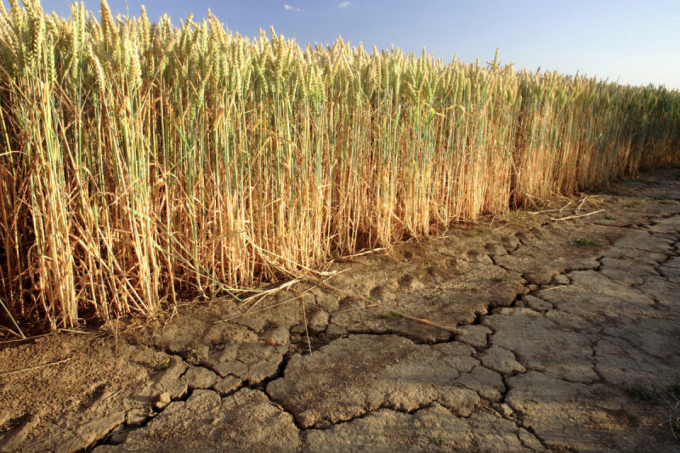November 26, 2025 | 03:46 GMT +7
November 26, 2025 | 03:46 GMT +7
Hotline: 0913.378.918
November 26, 2025 | 03:46 GMT +7
Hotline: 0913.378.918

The dry weather has caused yield and quality losses. Photo: Adobe stock
The country’s total wheat production is forecast to drop to 16.5 million tonnes in the 2021-22 marketing year compared to the USDA’s original estimate in April of 17.6 million tonnes. The dry weather has caused yield and quality losses. Low domestic prices and an increase in input costs has lowered the wheat planted area by 100,000 hectares to 7 million hectares.
The USDA expects Turkey’s wheat consumption to rise by 1.4 million tonnes in the 2021-22 marketing year to 22 million tonnes as a limited barley supply has caused feed millers to utilize more wheat. An increase in demand and a smaller harvest is anticipated to lead Turkey to import a record 11.25 million tonnes of wheat in the 2021-22 marketing year. This same demand and harvest are forecast to decrease wheat exports by 300,000 tonnes to 6 million tonnes.
Similar to wheat, Turkey’s barley production is forcast to slip due to dry weather. Originally forecast to produce 7.7 million tonnes, the USDA now expects the country to harvest about 4.5 million tonnes of barley in the 2021-22 marketing year due to insufficient rains causing yield losses. Consumption of the commodity is projected to be 7.5 million tonnes. The country is expected to import about 2.75 million tonnes of barely due to the smaller production outlook.
Unlike wheat and barley, Turkey’s corn production benefited from favorable weather conditions in late May and June, causing better yield expectations. The USDA said market year 2021-22 corn planting is complete and the country is expected to produce 6.8 million tonnes of the commodity. Expected increased demand from the feed sector is forecast to boost corn consumption by 500,000 tonnes to 9.3 million tonnes in 2021-22.
Due to a high domestic production of corn in 2020-21, imports of the commodity have been slower. Imports of corn in the first nine months of 2020-21 have reached 1.7 million tonnes. The USDA anticipates imports in 2021-22 to be 2.8 million tonnes to meet demand from the feed and starch sectors.
(World Grain)

(VAN) Brazil's COP30 presidency pushed through a compromise climate deal on Saturday that would boost finance for poor nations coping with global warming but that omitted any mention of the fossil fuels driving it.

(VAN) Poultry farmers in the UK have been warned that they could face one of the worst winters yet for bird flu.

(VAN) Prices of main-crop paddy have risen sharply, with jasmine rice hitting 16,100 baht per tonne — the highest level in years.

(VAN) In Brazil, FAO unveiled a series of reports and initiatives showing how sustainable agrifood systems are a solution to the climate crisis.

(VAN) With names like neodymium and dysprosium, rare-earth elements sound exotic — and their perceived scarcity has only added to the mystique.

(VAN) In a new study published in Trends in Biotechnology, researchers used a gene-editing technology called CRISPR to increase a fungus's production efficiency and cut its production-related environmental impact by as much as 61%- all without adding any foreign DNA.

(VAN) A top official in Beijing’s Cop delegation says China is committed to clean energy – but US’s absence is a problem.